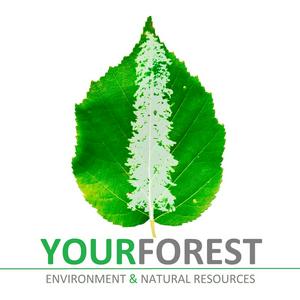161-Mastering Conflict-The Role of Dialogue in Landscape Management with Robin Freeman and James Whitehead
In this episode of the YourForest Podcast, Matthew Kristof explores the essential role of dialogue in effective landscape and wildfire management. Joined by Robin Freeman, Project Manager for the Wildfire Networks at the SFU Centre for Dialogue, and James Whitehead, Special Projects Manager for the Mitigating Wildfires Project, they dive into how open, empathetic communication can help diverse stakeholders collaborate toward better environmental management solutions.The discussion covers the intricacies of dialogue as a tool for conflict resolution, the challenges of managing wildfire risks, and the importance of understanding differing perspectives in environmental decision-making. The conversation highlights the need for vulnerability and honesty, both from facilitators and participants, in creating an environment where meaningful dialogue and change can happen.🌟 Key Points 🌟👉 Dialogue Goes Beyond Conversation - Dialogue is more than just talking—it’s a structured process that requires active listening, empathy, and a willingness to engage with different perspectives. By fostering this, stakeholders can move toward sustainable solutions in landscape management.👉 Conflict is Not to be Avoided - It’s an Opportunity - James and Robin highlight that conflict, when handled respectfully, is an opportunity for innovation. By embracing disagreement and seeing it as a chance to understand differing perspectives, stakeholders can arrive at better solutions.👉 The Role of Facilitators in Navigating Complex Conversations - Facilitators are crucial in managing conversations, especially when disagreements arise. Their job is not to lead the conversation but to create a safe, respectful space where all participants can share their views and build mutual understanding.👉 Empathy is Key to Understanding and Collaboration - Empathy is the cornerstone of effective dialogue. Understanding the personal and emotional context behind others’ views helps participants move from a place of disagreement to one of cooperation.👉 Create Structured Opportunities for Participation - Robin and James emphasize the importance of using techniques that allow everyone to have a voice, especially in large group settings. By creating structured opportunities for sharing and collaborating, facilitators can ensure that even the quietest participants are heard.💬 Quotes 💬💬 [00:00:05 - 00:00:24]Robin Freeman: "The system as a whole will be healthier if we hear from more parts of the system. It's this idea that nobody has a monopoly on the truth, and so we actually need as many people as possible sharing their point of view so that we can make good decisions, because otherwise we don't see the whole picture, and no one will ever see the whole picture.”💬 [00:59:21 - 01:00:29] James Whitehead: "The role of a facilitator is really to hold space for a conversation and to hold space for the conversation that needs to happen... The goal of the effective facilitator is to really be the one to enable that conflict to happen in a productive and respectful and safe way.💬 [00:36:12-00:36:39] Matthew Kristof: “Conflict is just two, or more, very passionate people are arguing passionately about something they care about. And you're like, Why is conflict bad? Why do we see conflict as a bad thing? As long as we can be mature about it, then all of a sudden, conflict becomes an opportunity.”⌛ Takeaways with Complete Timestamps ⌛[00:00:00] - Introduction to Dialogue and Its Role [00:06:39] - Understanding the Role of Conflict in Dialogue [00:17:11] - The Importance of dialogues[00:22:12] - Disagreeing Collaboratively [00:38:36] - Building Safe Spaces for Difficult Conversations[00:47:30] - Case Study: Wildfire Management and Dialogue[00:52:04] - Overcoming the Fear of Conflict[01:05:42] - Creating Impactful Conversations in Landscape Management.[01:08:50] - Understanding Shared Values in Landscape Management [01:15:27] - Final Thoughts on Facilitating Change through DialogueImportant Links:👉 I and Thou: Martin Buber's Philosophy of Dialogue - https://youtu.be/AT6wEZfotVI?feature=shared👉 TED talk from Myrna Lewis - https://www.youtube.com/watch?v=FsFz1H447kk&t=49s👉 Links for Conflict is Opportunity - https://www.youtube.com/watch?v=AT6wEZfotVI👉 Complex Systems Frameworks Collection - https://www.sfu.ca/complex-systems-frameworks/frameworks/complex-vs-complicated/cynefin.html👉 Polarity Management - A Summery Introduction - https://rise-leaders.com/wp-content/uploads/2019/07/Polarity-Management-Summary-Introduction.pdf👉 Practical Lessons From A Mediator’s Notebook - https://www.theconflictjourney.com/2017/09/29/adam-kahane-collaborate-with-enemy/Follow the Guests on:👉 James Whitehead LinkedIn: https://www.linkedin.com/in/jamesmwhitehead/👉 Robin Freeman LinkedIn: https://www.linkedin.com/in/robin-freeman-ed-d-73b4a8212/Sponsors👉 West Fraser: https://www.westfraser.com/👉 GreenLink Forestry Inc.: https://greenlinkforestry.com/Follow YourForest Podcast on:👉 Website: https://yourforestpodcast.com/👉 YouTube: https://www.youtube.com/@yourforestpodcast7324👉 Facebook: https://www.facebook.com/yourforestpodcast👉 Instagram: https://www.instagram.com/yourforestpodcast/👉 LinkedIn: https://www.linkedin.com/company/yourforestpodcast/👉 Twitter: https://x.com/yourforestpdcst/👉 Email:
[email protected] you liked this podcast, please rate and review it on your favorite platform! 🌟


